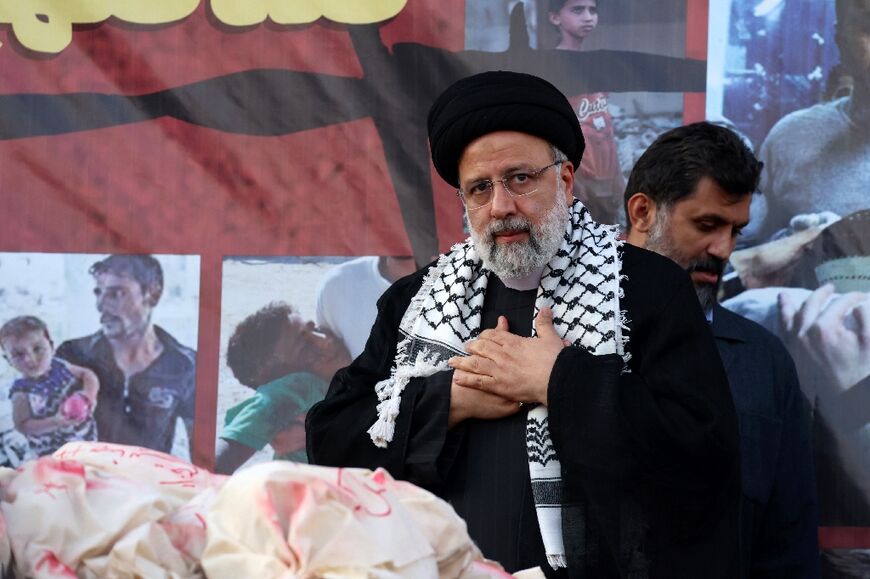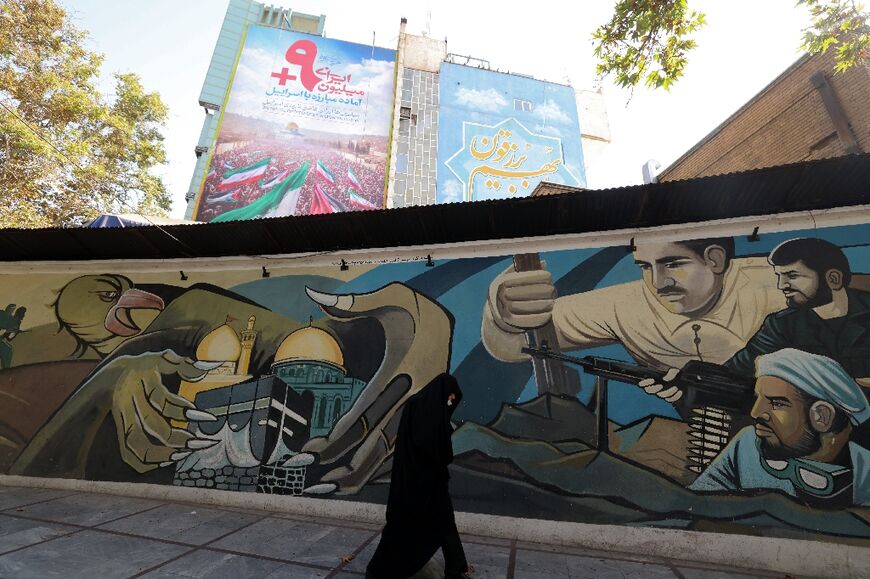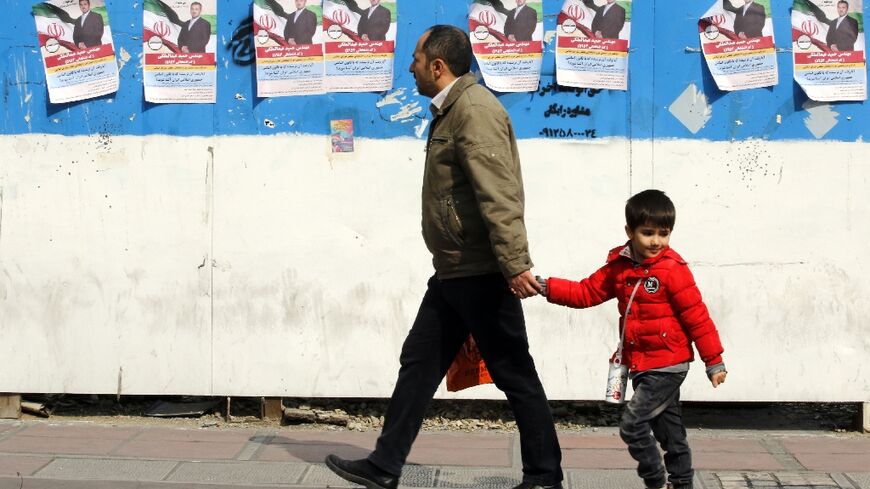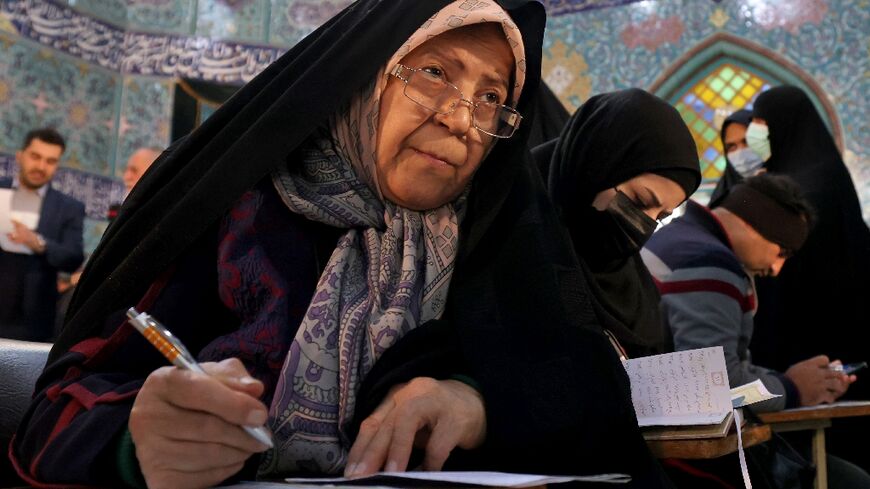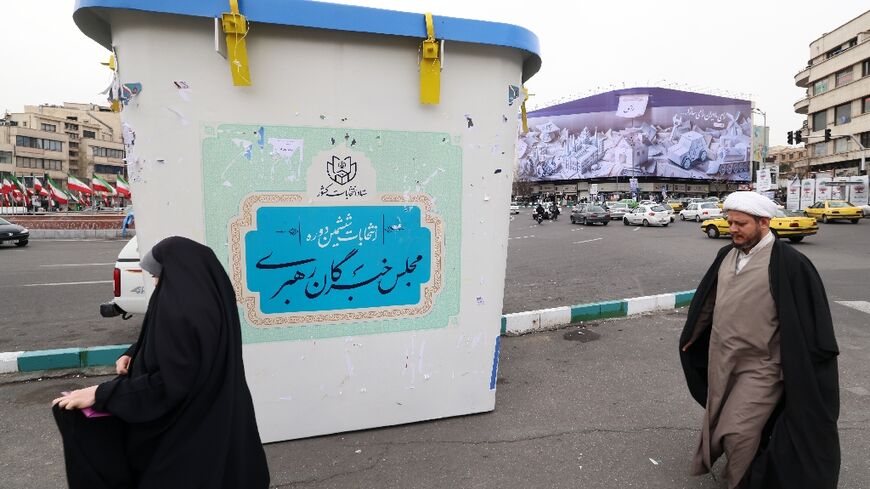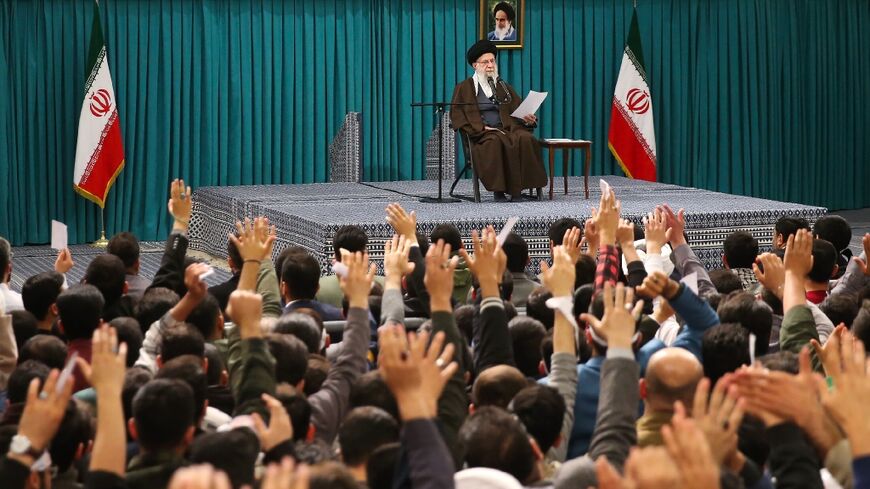In Iran, Gaza war overshadows preparations for 2024 legislative vote
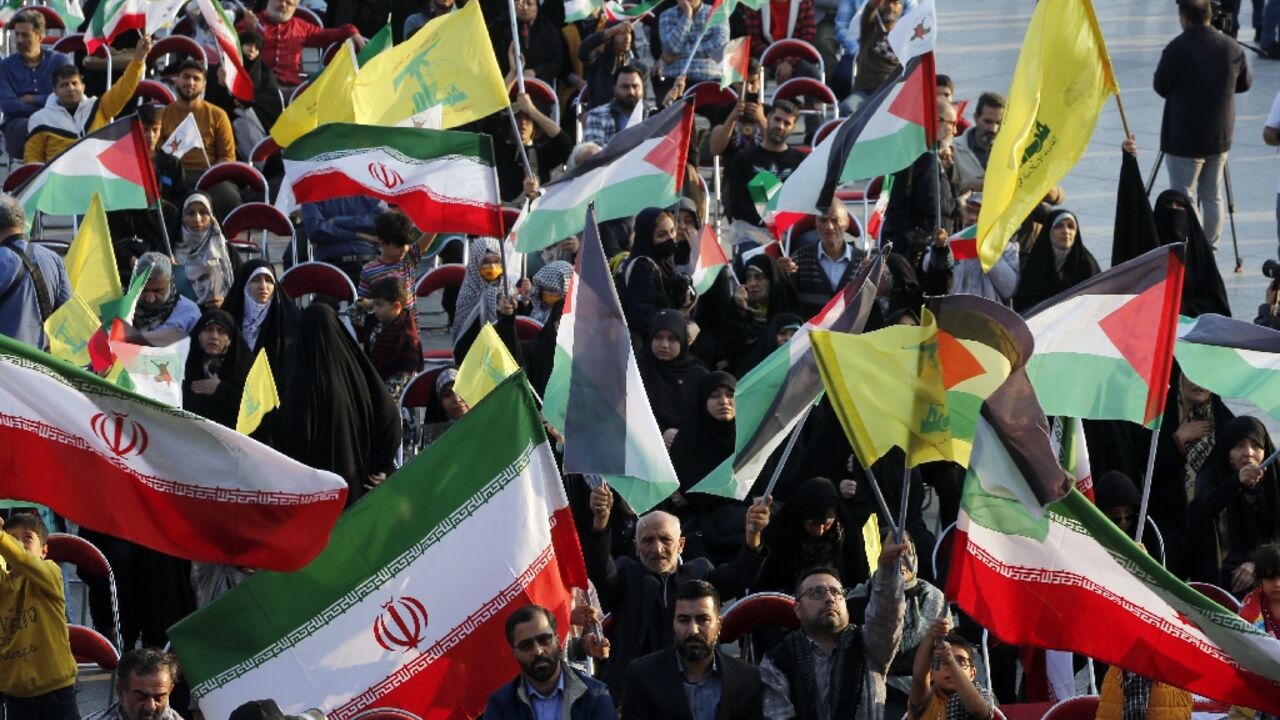
As the war in Gaza continues to hold public attention, Iran is gearing up for parliamentary elections next year where many conservatives are determined to tighten their grip on power.
The Islamic republic has since August opened registration for candidacy in the upcoming parliamentary elections slated for March 1, 2024.
Last week, officials announced that out of the 24,982 applicants, around 28 percent have been disqualified in an initial screening phase.
The decision can be appealed and a final list of candidates competing for the 290-seat parliament will be announced one month ahead of the March vote.
With the preparations underway, many in Iran are preoccupied with mounting economic difficulties and the aftershocks of last year's mass protests triggered by the death of Mahsa Amini.
Political scientist Ahmad Zeidabadi says he expects voters to refrain from taking to the polls "if the system cannot offer them reasons for hope and change."
Another growing concern among Iranians is the potential impact of the war in the Gaza Strip, which broke out on October 7 between Palestinian Hamas militants and Israel.
Zeidabadi says the repercussions of the Gaza conflict could also impact the election results especially if Hamas, which Iran supports, was defeated.
It "would weaken the position of the government's supporters," he said.
-'Fervent' elections -
Next year's elections will be the first since nationwide protests rocked Iran following Amini's death in September 2022.
Amini, a 22-year-old Iranian Kurd, died in police custody following her arrest over an alleged breach of the Islamic republic's strict dress code for women.
Iran's current parliament, which was formed in 2020, has been dominated by conservatives after many reformists and moderates were disqualified.
The country at the time saw a voter turnout of 42.57 percent -- the lowest since the 1979 Islamic revolution.
On Thursday, Iran's supreme leader Ayatollah Ali Khamenei called for "fervent" elections.
Ultra-conservative President Ebrahim Raisi, who took office in August 2021, said his government has "no candidate" in the upcoming legislative elections.
"We are only looking to create the ground for wider and higher participation of all people and groups in the elections," he said.
Supporters of reformist candidates fear another 2020 scenario after multiple candidates were disqualified in the initial screening.
Reformist daily Ham Mihan said last month that there was a common view that "even if the known and famous reformists register as candidates, it is unlikely that they will be approved."
Many have accordingly opted against competing including Ali Larijani, former parliament speaker who ran against Raisi during the 2021 presidential elections.
In May, Larijani accused some of leading a campaign to "purify" the political atmosphere by eliminating any adversaries.
Among the disqualified candidates include the reformist incumbent MP Massoud Pezeshkian, known for his criticism of the government and who described his disqualification as "ridiculous".
- Divisions -
On Tuesday, Interior Minister Ahmad Vahidi dismissed what he called the "immoral" criticism, saying the government was "absolutely not involved" in candidates disqualification.
Discussions within Iran's current parliament showed deepening "divisions among conservatives" despite the absence of an influential moderate camp, according to Zeidabadi.
Among the most heated debates in recent months was over a bill toughening sanctions on women who fail to adhere to Iran's strict Islamic dress code.
Parliament approved the bill in September but it has yet to be ratified by the Guardian Council.
Besides the parliamentary elections, Iranians will also have to choose members of the Assembly of Experts on March 1.
The body, which holds the only authority to appoint or dismiss the Supreme Leader, comprises 88 members and holds elections every eight years.
More than 300 candidates have registered to compete for seats.
Raisi, who is the assembly's deputy chairman, is seeking to renew his membership of the body.
Moderate former president Hassan Rouhani, who is also an assembly member, also announced running, saying he would be "engaged on a difficult and steep path".



